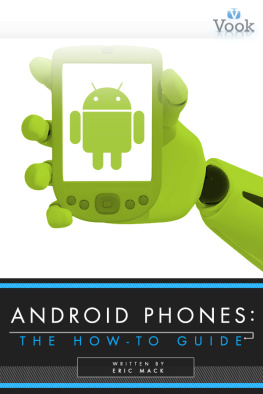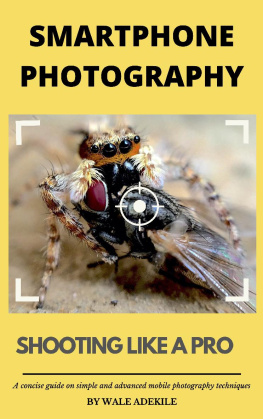Android
BRADLEY LOOKED at the Director's head. His stomach tried' to crawl up into his throat. He felt suddenly dizzy. He knew that he was betraying himself, and that would be absolutely fatal.
He reached into his pocket, pulled out a pack of cigarettes and a few coins, and let the coins drop, as though by accident, to the airfoam carpet.
"Oh-oh," he said, and immediately crouched down to recover the money. It's a basic principle of first aid, in cases of shock or faintness, to lower the head, and Bradley was doing just that. The giddiness began to pass as his circulation picked up. In a moment, he knew, he'd have to stand up and face the Director, and by that time he was determined to have his feelings under control. But how the devil could the Director's head be where it wasafter last night?
And then sanity came back. He remembered that, last night, the Director couldn't possibly have recognized him through the rubber-plastic false-face he had worn. On the other hand, after last night, the Director of New Products, Inc., should have been incapable of living or breathing, not to speak of using his memory-centers. Bradley had left the man's body in one corner of the room and his head hi another.
Man?
With a violent effort he controlled himself. He recaptured the last coin and stood up, his face flushed. "Sorry," he said. "I came in to deliver that report on
the induced mutation project, not to act like a horn of plenty." His fascinated stare moved down to the Director's neck and flicked away. The high collar concealed any any mark. Any mark, such as might have been left by razor-sharp steel shearing through flesh and bone.... Was there a reason for the high collar? Bradley couldn't be sure. In the fall of 2060, men's fashions had changed considerably from the uncomfortable styles of a few years before, and the Director's flaring half-cape, with its gilt-braided, close-fitting collar, was far from extreme. Bradley owned one like that himself.
Lord, he thought in white paniccan't thethe things even be killed?
Arthur Court , the Director, turned a bland smile on his Chief of Organization. "Hangover?" he asked. "Take an irradiation treatment. Medical's always happy to use their gadgets. Our staff's too healthy to suit them, I think." He talked!
A mad thought whirled into Bradley's brain: a ringer? Was this really Court sitting behind the desk? But instantly he knew that couldn't be the explanation. It was Court, the same Arthur Court whom Bradley had killed not many hours ago. If you could call it killing, when Court hadn't actually been alive ... at least, not with the same sort of life that activated human beings.
He forced his mind from the danger-level and became the efficient Chief of Organization of the company. "You can't argue with a hangover," he said. "Here're the latest figures"
"What about that variant factor? I gathered there was something that upset the calculations."
"There was," Bradley said. "But it's a theoretical variable. It doesn't matter a bit in practice, because we're not trying to mutate people. And the sterility rate doesn't vary abnormally with fruit-flies oror strawberries."
"But it does with peopleeh?" Court glanced rapidly through the papers Bradley had given him.
"Uh-huh. We could follow it up, but it would cost money and wouldn't have any immediately practical results. That's up to you to decide, sir."
"We can predict non-human reactions with reasonable accuracy, though?"
Bradley nodded. "Two per cent factor of error. Close enough for us to mutate potatoes twenty feet long and
tasting like roast beef, without any danger of getting them half an inch long instead, and tasting like cyanide."
"Does the curve of variance rise with animals?"
"No. Only people. We can hatch chickens which are all white meat and built cube-shaped for easy carving. And, really, we could mutate people too, if it weren't illegalbut the uncertainty factor steps in there, as I said. Too many people become sterilized instead of hav-ing mutated children."
"Um," Court said, and pondered. "Well, forget about the people, then. There's no profit in it. Drop that part of the investigation. Go ahead with the rest. All right?"
"Fine," Bradley agreed. He had expected to be stopped at this point of the inquiry, though, since last night, not by Court. He found he was still holding an unlighted cigarette. He put it in his mouth and went to the side door and opened it. Then he turned.
"That's all?"
He watched Court twist his neck around, and had an insane fear that the man's head might fall off. But it . didn't.
"Yes, that's all for now," Court said pleasantly.
Bradley went out, trying to forget the narrow red line he had just seen circling the Director's throat, revealed when the man had turned his head.
The things couldn't be killed by decapitation, then. But they could be destroyed. They could be dissolved with acid, smashed with a hammer, dismantled, burned....
The trouble was, there was as yet no sure way to recognize the creatures. The sterility curve after exposure to mild radioactivity meant something, but ordinary humans could have become sterilized toothough not usually by such slight dosages of gamma rays. And even then, some people were sterile anyway.
All Bradley had was a general method of screening. After that, he had to depend on psychology to weed out the monsters. He knew that they could usually be found in positions of power and influence, though not necessarily in the public eye. Like Arthur Court , who, as Director of New Products, Inc., wielded tremendous influence on the culturesince civilization is moulded by the technological tools placed in its hands.
Bradley shivered.
Last night he had cut off Arthur Court 's head.
Arthur Court was an android.
"And what are you going to do about it?" Bradley asked himself in the hall outside Court's door. He looked down with a certain academic interest at his own hand shaking until the papers he held fluttered. What could he do about it? He or any other man?
You couldn't fight them on equal terms. Probably their I.Q. was far higher than mankind's. On terms of pure intellect Bradley would' have no chance at all. Super-comptometers could solve abstruse problems no limited human mind could tackle. Last night Bradley had worn a distorting rubber maskbut if Court's cold metallic brain set itself the problem of reasoning out his identity, wouldn't Court arrive at the right answer sooner or later?
Had he already arrived at an answer?
Bradley suppressed a panicky impulse to run. There was such dead silence behind the door at his elbow. For all he knew they had vision that could slip between the buzzing atoms of the door and see Bradley here as if he stood beyond glasssee through him and into the patterns of his brain, and read all bis thoughts as they took form.
"They're only androids," he reminded himself with great firmness, forcing his gait to a walk as he turned away down the hall. "If they had that much power I wouldn't be here now."
Still, he wondered with a corroding urgency just what had happened last night after he left Court's apartment. He would not think of how Court had looked, lying there motionless beside the heavy steel blade dimmed by that stickiness that looked like blood and was not human blood.
Had he repaired himself, after Bradley left? Repaired was the word, of coursenot cured. Only a human could be cured. It probably depended on just where the brain of the android was located. Not necessarily in the head. The head is really too vulnerable a place for such an important mechanism. You could improve on the structure of the human in so many ways. Perhaps the androids had. Perhaps Court's brain was sheltered somewhere in the mysterious chambers of his synthetic body, and its cold, clicking thoughts had gone on then- steely processes all the while Bradley stood there looking down in incredulous shock at the body of hishis victim?
Next page








![Hart-Davis - Teach yourself visually Android phones and tablets, [2015]](/uploads/posts/book/212223/thumbs/hart-davis-teach-yourself-visually-android-phones.jpg)



